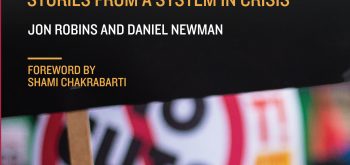The High Court has ruled in favour of four working mothers who challenged the way the Department for Work and Pensions (DWP) assessed their Universal Credit claims. In a judgment handed down this morning, Lord Justice Singh and Mr Justice Lewis ruled that the DWP has ‘wrongly interpreted’ the regulations which led to ‘nonsensical situations’.
The single mothers, represented by the law firm Leigh Day and the Child Poverty Action Group, challenged the government after losing out on several hundreds of pounds and being left in financial hardship. Assessment periods run for a calendar month, starting from the date the benefit is awarded. At the end of each month, a claimants’ circumstances and income are assessed to determine their entitlement, with a payment made a week later in arrears. However, the mothers all had monthly paydays that ‘clashed’ with the dates of their monthly assessment periods. This meant that if they were paid early some months, they were treated as receiving two monthly wages in one assessment period. In addition to creating wildly fluctuating universal credit awards, when the mothers received two pay cheques in one assessment period, they lost the benefit of one month’s work allowance.
The allowance for claimants who have dependent children or an illness or disability is the amount of earnings they can keep in full before Universal Credit is tapered away at a rate of 63p in every pound. It is currently worth £198 per month if claiming housing costs, £409 if not and only one work allowance can be applied per month.
The DWP refused to adjust the mothers’ assessment periods or to attribute monthly wages paid early to the actual assessment period in which they were earned, so as to enable them to avoid varying awards and cash losses. During the court proceedings the Secretary of State argued that despite the hardship being caused, the way in which income was being assessed was lawful, it made sense given the automated nature of Universal Credit and that this was an issue which employers should remedy rather than the DWP.
All of these arguments were rejected by the court which found that correctly interpreted, the regulations mean the DWP can and should adjust its calculation of universal credit awards when it is ‘clear that the actual amounts received in an assessment period do not, in fact, reflect the earned income payable in respect of that period’. In other words, wages are to be allocated to the month in which they were earned, rather than to the assessment period in which they were received. The fact that this was not being done was ‘odd in the extreme’ and such errors meant claimants faced ‘severe cash-flow problems’.
The DWP then went on to attempt to mitigate the failings on the basis of the additional costs that adjusting their systems would incur. The court cared little for this justification stating that: ‘If the regulations, properly interpreted, mean that the calculation must be done in a particular way, that is what the law requires. We do not belittle the administrative inconvenience, or the cost involved but the language of the regulations cannot be distorted to give effect to a design which may have proceeded on a basis which is wrong in law.’
Whilst this case is a landmark win for the four mothers, Tessa Gregory, solicitor from Leigh Day who represented one of the women, insisted that Amber Rudd ‘must take immediate steps to ensure that no other claimants are adversely affected and she should also ensure all those who have suffered because of this unlawful conduct are swiftly and fairly compensated.’ ‘My client is a hard-working single mum doing her very best to support her family,’ Gregory said. ‘She is precisely the kind of person Universal Credit was supposed to help. It is extraordinary that when this issue was first raised, the Secretary of State did not act quickly to remedy the problem, instead choosing to fight these four women in court arguing that the system was fit for purpose despite the hardship being caused to working families. This is yet another demonstration of how broken Universal Credit is and why its roll out must be stopped.’
The Child Poverty Action Group’s solicitor Carla Clarke called it ‘a very welcome and common-sense judgment’. ‘Our clients have been doing everything they can to support themselves and their young children through work but the rigid assessment system in universal credit has caused them untold hardship, stress and misery with them being forced repeatedly to manage on half of their usual total monthly income despite their fixed outgoings remaining the same. They have each ultimately questioned why they are even working.’
This victory comes as Amber Rudd confirmed that she was overhauling parts of the government’s flagship welfare reform in an attempt to allay fears about the programme’s roll-out.






